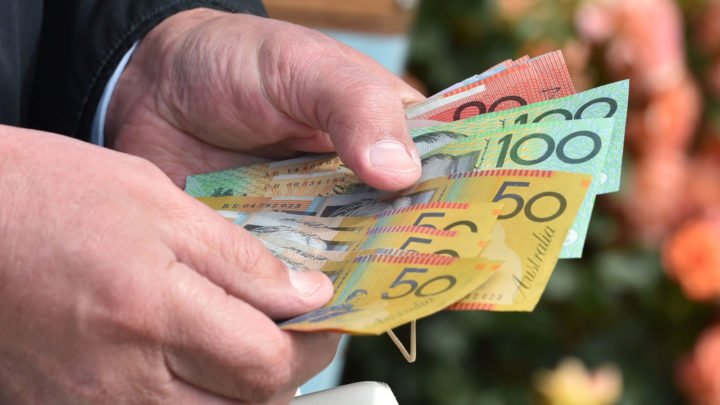Over the past few weeks life in Australia has changed drastically, as more and more businesses and public spaces have been forced to close their doors due to the introduction of strict social distancing measures by the government.
Now, as the country continues to tackle the spread of Covid-19, only essential services remain open, such as supermarkets, pharmacies, medical centres, hairdressers, bottle shops and petrol stations, while cafes and restaurants are able to remain open on a takeaway basis only.
While Prime Minister Scott Morrison has advised all Australians to keep 1.5 metres between each other at all times and exercise increased personal hygiene, some businesses have taken precautions a step further and have stopped accepting cash out of fear it could be contaminated with the virus.

So, do banknotes pose a risk, should you keep using them and what other options are available?
Is using cash risky?
Speaking during Starts at 60’s first ever live webinar this morning, Rob Lockhart, from Westpac’s Davidson Institute said that exchanging banknotes should present no bigger risk than anything else you touch throughout the day, however he acknowledged the fact that life could be about to get tougher for those among us who prefer to deal in cold hard cash.
“The most important thing if you are handling cash is wash your hands regularly,” he said. “Having said that though, quite a lot of cafes and shops are starting to be overly cautious. The reality is there are now lots of places where people don’t want to take your cash.
“It’s going to be very interesting, there’s going to be less places open and if they don’t accept cash you’re stuck.”
While the Department of Health has warned against touching any items that have “cough or sneeze droplets from an infected person”, the NSW Government has reportedly reminded businesses of the dangers of handling cash and suggested using hand sanitisers, according to the ABC.
Have any big players stopped accepting cash?
Many Australians have begun to notice signs displayed in their local cafes and restaurants, advising customer that they are no longer taking cash payments, including Starts at 60 CEO Rebecca Wilson whose offer of cash was turned down this week at a local coffee shop.
Other large chains, including Woolworths and BP, are still accepting cash, however they have posted notices encouraging customers to use contactless payment instead. While the ABC reports that McDonald’s staff across the country have been trained on how to minimise any risk when transferring currency, while they have also been told to wear gloves while doing so.
Can businesses legally refuse cash?
The short answer is yes. Legally, businesses can determine their preferred method of payment. Whether on not they would refuse to serve you if you had no other method of payment, however, depends entirely upon the business.
According to the Reserve Bank of Australia (RBA), “a provider of goods or services is at liberty to set the commercial terms upon which payment will take place before the ‘contract’ for supply of the goods or services is entered into”.
It is also worth noting that there are limits on how large a sum you can pay using coins, which differs depending upon the denomination.
Other payment options
The most obvious solution if you can’t use cash is to use a bank card instead, the majority of which now operate on a contactless basis, meaning that there’s no need to remember a PIN for transactions under $100. You can also make many payments using online banking, and set up direct debits or standing orders to cover regular payments such as utility bills or membership fees.
And, while debit and credit cards have been around for a long time now, Lockhart also outlined some of the other modern ways that people can pay for their purchases, particularly if they’re currently concerned about coming into close contact with other people.
One such method is PayWear, which he explained is a small wearable item, such as a brooch or bracelet. Then, when it’s time to pay at the checkout, you simply tap the item on the terminal as you would with any contactless bank card.
Important information: The information provided on this website is of a general nature and for information purposes only. It does not take into account your objectives, financial situation or needs.
Article reproduced from StartsAt60 by Jessica Galley


